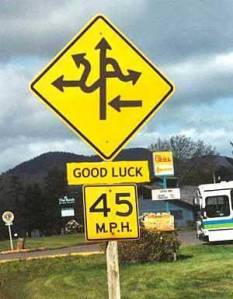 Chris Morton got my attention with his summary insights from the recent Missio Alliance conference.
Chris Morton got my attention with his summary insights from the recent Missio Alliance conference.
He made 8 key observations, but this one really struck me.
6. Anabaptists
Many of those at Missio fall into what I once heard referred to as “the Hauerwas mafia.” That is, those inspired by the writing of Hauerwas, Yoder and others, to think of themselves as neo-Anabaptist. Historically, anabaptists have either been persecuted by other churches, or have disengaged from the world (Amish).However, Anabaptism has one key tennent which is suddenly very valuable: it has never excepted the claims of Christendom, Christendom (culturally and governmentally enforced Christianity) and thinks of the church as a local, incarnational, counter society. As Christendom crumbles around North America and Western Europe, the Anabaptist tradition offers a posture for understanding the church’s place in the world.
(emphasis mine)
Loyalties
If Anabaptists have sort of weathered the storm that is Christian enmeshment in the over-influencial cultural siren of political involvement–and I think they have–we have a lot to learn from them moving forward. The Anabaptist tradition challenges us, in a most important way, to question some of our misplaced loyalties.
Issues of social justice come to the fore as well in this outlook because we begin to identify with and reach out to the people that Jesus did: the underdogs, the powerless, and those without a voice in the power games.
Is the shift obvious yet?
The U.S. cultural climate has changed drastically in the last 10 years. Is this reality evading us? It is.
Especially in Bible Belt areas that primary operate in a Christian biosphere. “Christian Land” happens in the places of profitable enterprises, power, influence, and a whole world dedicated to a kind of Christian sub-culture that, sadly, makes too little impact on the non-churched population.
Nashville comes to mind, for one. But there are plenty of less obvious locations that don’t have the sheen of Nash-Vagas. It’s the insular world (sometimes accompanied with chic hairdos and great pedicures) were folks really think their sorts of movies like Courageous deserve an Academy Award….and maybe woulda gotten one if it weren’t for them Hollywood liberals!
Yet, in most places in the U.S. the post-Christian era is here. Fully. To the unchurched, in many areas of the country, Christians and their silly churchy ways are impotent charicatures suitable for mocking. To those outside the bubble, they aren’t making a difference too much in the world, and not making progress in the spiritual depth of their own cliché either.
This means a reevaluation of what it means to be Christian and living a Kingdom life is crucial.
We need to once again ask, as we must in every generation:
• “What are our core values and mission as Kingdom people?”
• “Are our ways the upside down Kingdom ways?”
• If not, what should we learn? What is most meaningful moving forward?
The sifting begins!
Want my best guess? Millenials are the key to traction for the Kingdom now.
You can read Chris’ 7 other insights here.




